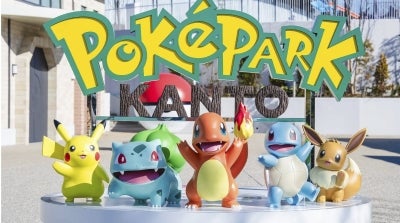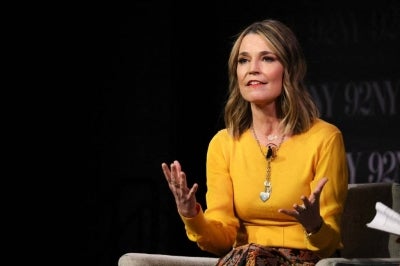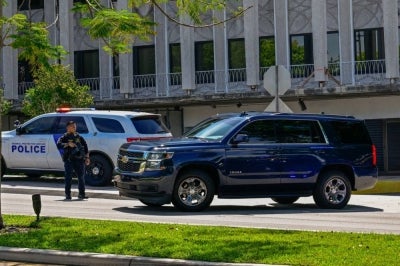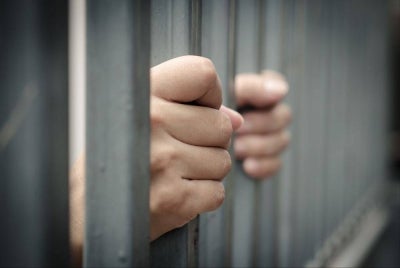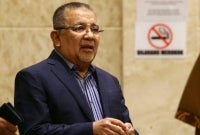Former gang leader charged with rapper Tupac Shakur's 1996 murder
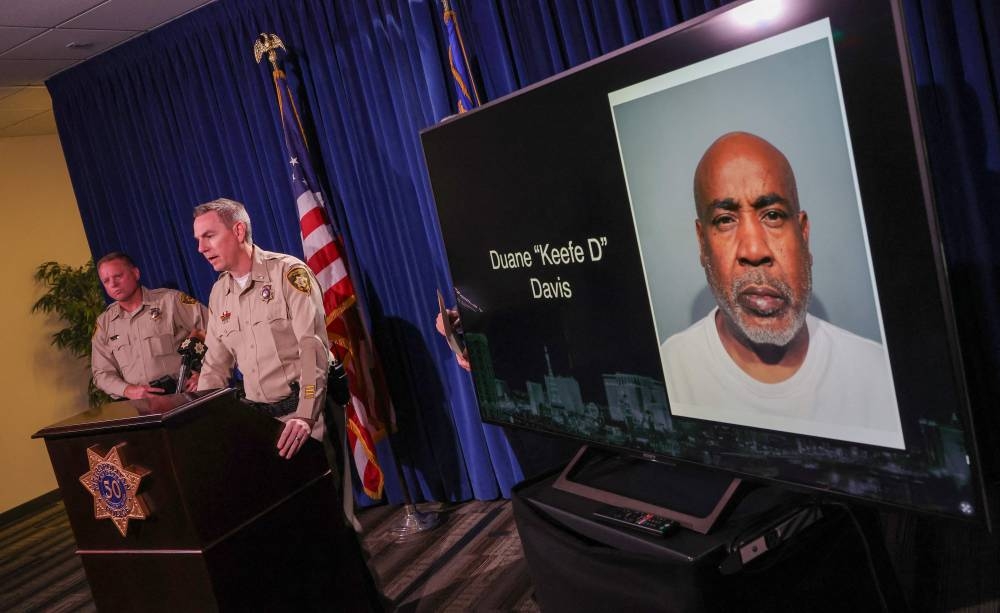
LOS ANGELES - A quarter of a century after Tupac Shakur was gunned down in a gang feud in Las Vegas, a man was charged Friday with his murder, a killing that came to symbolise the violence of gangsta rap as it surged into the mainstream.
Duane "Keffe D" Davis, 60, had long acknowledged his involvement in the slaying, boasting he was the "on-site commander" in the effort to kill Shakur and Death Row Records boss Marion "Suge" Knight in revenge for his nephew's assault.
Davis' early morning arrest Friday followed 27 years of investigations by police, who had been frustrated by an apparent lack of useable evidence, and came two months after they raided his home in Henderson, just outside Las Vegas.
"The presumption is great that he is responsible for the murder of Tupac Shakur, and he will be found guilty of murder with use of a deadly weapon," prosecutor Marc DiGiacomo told a court in Nevada.
Shakur, the best-selling hip-hop artist behind hits such as "California Love," "Changes," and "Dear Mama," was already a huge star in the world of rap when he was gunned down in Las Vegas on September 7, 1996. He was just 25.
He was signed to Death Row Records, an outfit associated at the time with Los Angeles street gang Mob Piru, which had a long-standing beef with the Southside Compton Crips.
DiGiacomo said on the day of the murder, Shakur and Death Row Records co-founder Knight were in Las Vegas to watch Mike Tyson fight.
In a hotel elevator lobby they set upon Crips member Orlando Anderson, the nephew of Davis.
"(Davis) formulated a plan to exact revenge upon Mr Knight and Mr Shakur" for this beating, DiGiacomo said.
"He acquired a 40-caliber Glock firearm from a drug associate.
"He gets into (a light-colored) Cadillac and he provides the 40-caliber Glock firearm to one of the two individuals in the back seat," and the group set off to find their intended victims.
The two rap moguls were spotted in a car on a Las Vegas street.
"They pulled up next to the vehicle and the rear passenger fired a number of rounds out of that vehicle striking Mr Knight in the head and Mr Shakur several times," DiGiacomo said.
Shakur died in a hospital several days later. Knight survived.
The prosecutor said what happened that night had been largely understood by investigators for many years, but they had not had sufficient admissible evidence to advance the case.
That began to change when Davis, reportedly the only person in the car that night still alive, published an autobiography and spoke about the crime for a TV show.
"He admitted to being the front right passenger in the light Cadillac and that he was the on-ground, on-site commander of the effort to kill Tupac Shakur and Suge Knight."
A court hearing in the case was scheduled for next week.
- Rivalry -
Shakur had a brief but stratospheric career, rapidly rising from backup dancer to self-styled gangsta rapper and one of the most influential figures in hip-hop, selling 75 million records.
He became a key figure in a vaunted rivalry, egged on by promoters, between East Coast and West Coast hip-hop.
Though born in New York, Shakur moved as a teenager with his family to California, becoming one of the most identifiable figures in the West Coast scene.
Shakur's murder was followed six months later by the shooting death in Los Angeles of his rival, East Coast rapper Christopher "The Notorious BIG" Wallace.
The investigation's slow progress led to accusations police were not trying hard enough to find the killers of young Black men.
Las Vegas Metropolitan Police Department Sheriff Kevin McMahill on Friday said that was not true.
"I know there's been many people who did not believe that the murder of Tupac Shakur was important to this police department," he told reporters.
"I'm here to tell you, that was simply not the case. It was not the case back then. And it is not the case today.
"Our goal... has always been to hold those accountable and responsible for Tupac's violent murder accountable." - AFP
Download Sinar Daily application.Click Here!

